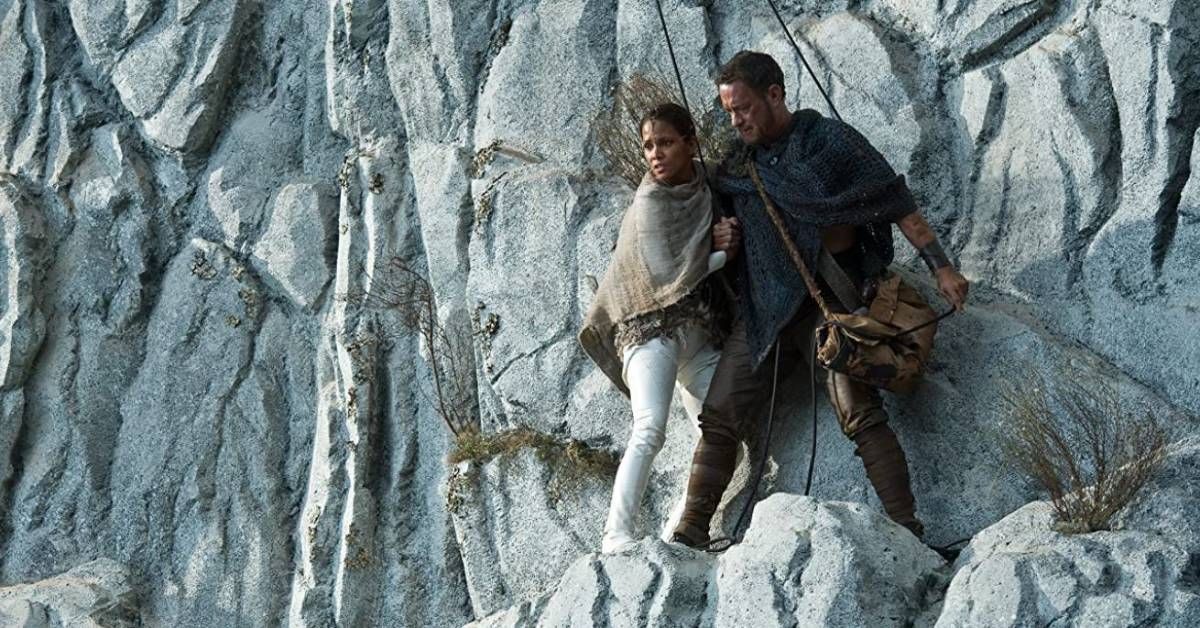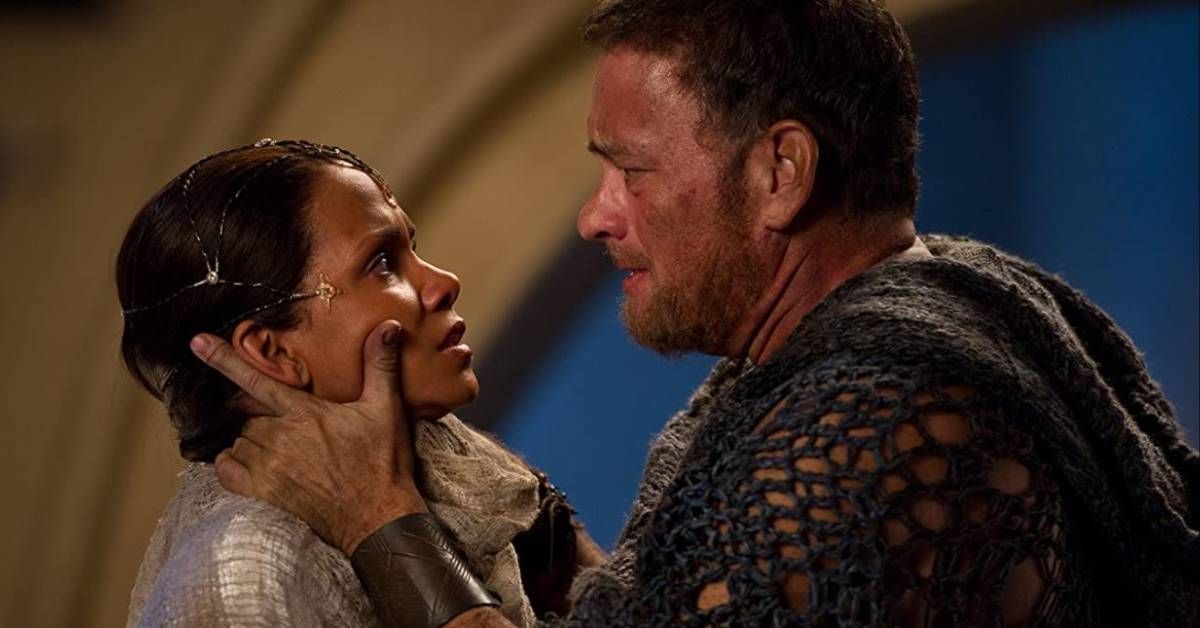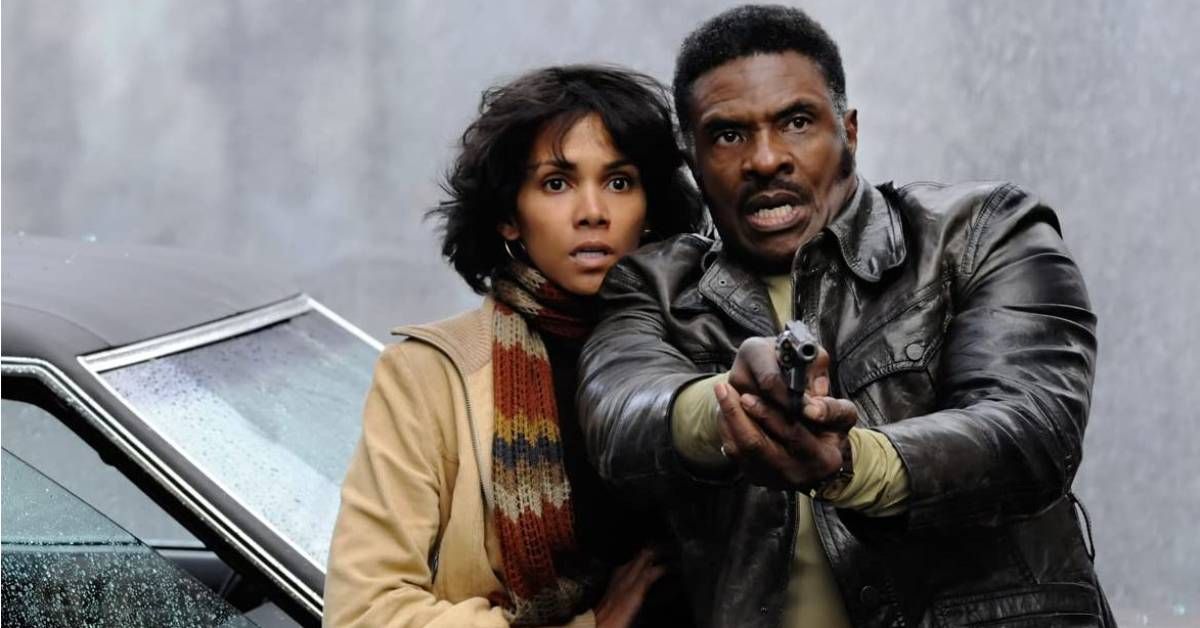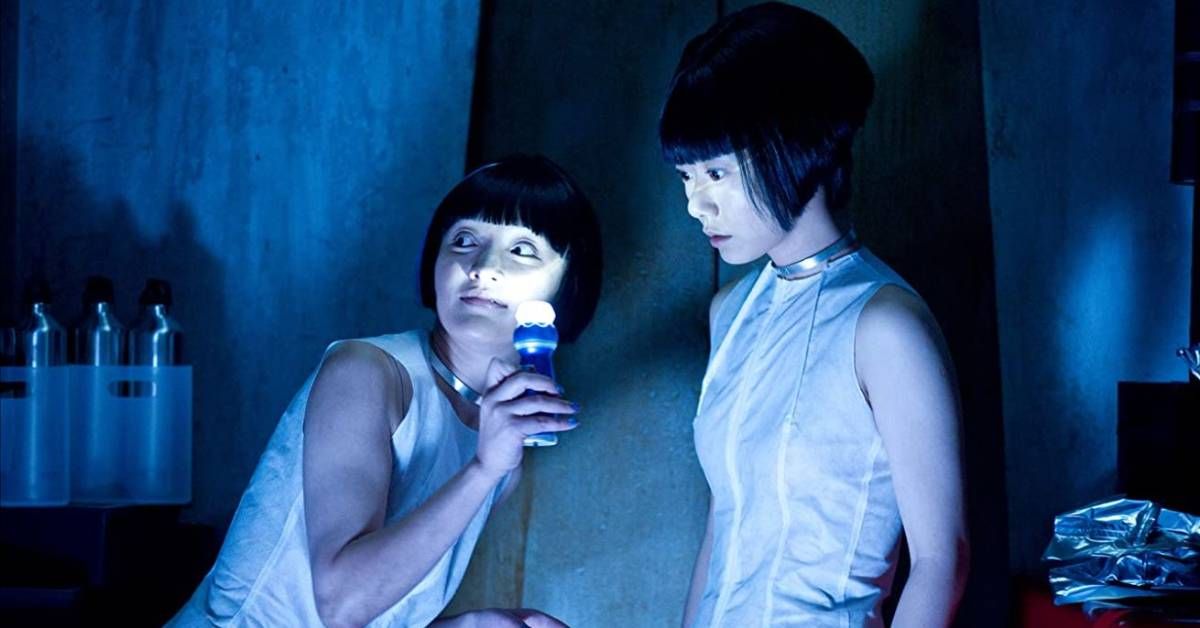"Our lives are not our own. We are bound to others, past and present. And by each crime and every kindness, we birth our future." What better quote, pulled directly from the 2012 epic film by the Wachowskis (The Matrix), to sum up the theme that threads together Cloud Atlas, starring Tom Hanks and Halle Berry. Still available to stream on Netflix for a limited time, it's not to be missed.
Based on the acclaimed 2004 novel of the same name by David Mitchell, the film has multiple plots occurring during six different eras in time. It's an exploration of how the actions of individual lives impact one another in the past, present and future, as one soul is shaped from a killer into a hero, while an act of kindness ripples across centuries to inspire a revolution.
Cloud Atlas hit the masses in October 2012 and polarized film critics, causing it to be included on various "Best Film" and "Worst Film" lists that year. It nabbed a Golden Glob nod for Best Original Score, but commercially, the big-budget effort was a significant flop upon its release.
In a recent interview, however, Hanks revealed Cloud Atlas to be one of his top three favorite films he's worked on. And why not? After all, Roger Ebert gave Cloud Atlas a four-star review upon its release. Our own critic agreed that it's a "must see," despite the film's setbacks. Here's why others can join in the notion that the Wachowskis' 2012 feature is a thumbs-up achievement and, indeed, an underrated masterpiece.
A-list Cast Provides Terrific Performances
Besides Hanks and Berry, the sprawling epic also features standout supporting performances by Hugo Weaving, Susan Sarandon, Jim Broadbent, Ben Whishaw, Hugh Grant, Doona Bae, Jim Sturgess, Keith David and James D'Arcy—and they all acquit themselves quite well. "I can’t remember the last time I had this much fun on a movie," Berry told Collider in a 2012 interview. "There was a knowingness, when this was all happening, that this was pretty special and, as artists, we should soak in every moment of what this process is."
The scale and ambition of the film, paired with the exotic locations, made it a magical experience for Hanks. "That was the first time I'd ever shot extensively in Germany, and I was surrounded by history," Hanks recently told Bill Simmons. "But the work itself was that we were part of this big, massive ensemble of fantastic people who were just trying to do the hardest, best work on this deep throw."
While a stacked cast doesn't always guarantee a movie to be a masterpiece, it certainly factored into Cloud Atlas' inspired end result, as each character plays multiple characters throughout the film's three hours. Hanks, for instance, plays a corrupt doctor on a sailing vessel, a nosy clerk at a shabby European hotel, a conflicted nuclear scientist in 1970s California, a thuggish author in London, a minor character in a TV movie viewed in futuristic Korea, and a tormented post-apocalyptic tribesman. Berry plays the same quantity of characters, with others such as Broadbent and Grant also appearing in multiple roles. This brings us to our next reason why the film should be experienced by all...
Ambitious Storytelling Encourages Multiple Viewings
With the same actors blatantly appearing across multiple storylines, does Cloud Atlas become too confusing? What's it even about? "We're all essentially remaking some version of 'Medea' by way of 'Richard III' by way of 'The Great Train Robbery' by way of 'Casablanca' by way of 'I Love Lucy.' We're all taking a version of that and turning them into new stories," said Hanks in a 2012 interview. In referencing the quote at the beginning of this article, let's not forget that everything is connected. In Cloud Atlas, there's an 1849 diary of an ocean voyage across the Pacific (led by a never-better Sturgess), letters from a composer to his lover (featuring a heroic Whishaw), a thriller about a conspiracy at a nuclear power plant (commanded by a fierce Berry), a farce about a publisher in a nursing home (starring the loveable Broadbent), a rebellious clone in futuristic Korea (portrayed by an emotionally charged Bae), and the tale of a tribe living on post-apocalyptic Hawaii (centered on a ferocious performance by Hanks).
While the stories in Mitchell's novel were told in chronological order, then circling back again from end to beginning, the film rather finds its connections through the reappearances of the same actors in different roles and deliberately refers to one story from within another. Characters appear to recur in each era but change relationships to each other. Slaves or abusers often change roles, suggesting reincarnation or other connection between souls throughout time. Each segment is a refashioning of the story contained in the previous one, with physical motifs like the same birthmark turning up in every period of time. It's worth putting in the hours to see Cloud Atlas again, thereby enabling you to better appreciate the film due to all the parallels you catch the second time around.
It’s An Utter Celebration of Cinema
"Cloud Atlas is our getting back to the spectacle of the sixties and seventies, the touchstone movies," Lilly (then-Andy) Wachowski once told The New Yorker, adding that the model for their vision was 2001: A Space Odyssey. Compared to Stanley Kubrick, the Wachowskis and co-director Tom Tykwer are equally confident in their storytelling here, which is particularly highlighted in that each plotline stays coherent and linear despite the frequent cutting between time frames. The thrilling, Golden Globe-nominated soundtrack plays over multiple storylines and scenes, effectively establishing the overall film as a cohesive whole.
Moreover, to see the film is to understand Cloud Atlas as a true passion project. The film evokes inclusive, humanistic takeaways: how intolerance robs us of humanity, how unjust social infrastructures exist to be shattered, and the list goes on. “When you try to make a difference in the world, when you try to engage, when you try to change conventional wisdom whether you are making an experimental film and the critics are saying, ‘You can’t combine action and mainstream narrative with philosophical art house aesthetics! This is not allowed!’ [then] they spit on us. They’ll try to lynch us," Lana Wachowski once told TheWrap. In cinema, we're here to say that this isn't just allowed, but encouraged. Following her latest, buzzy effort with The Matrix Resurrections, we can't wait to see what Lana does next.




